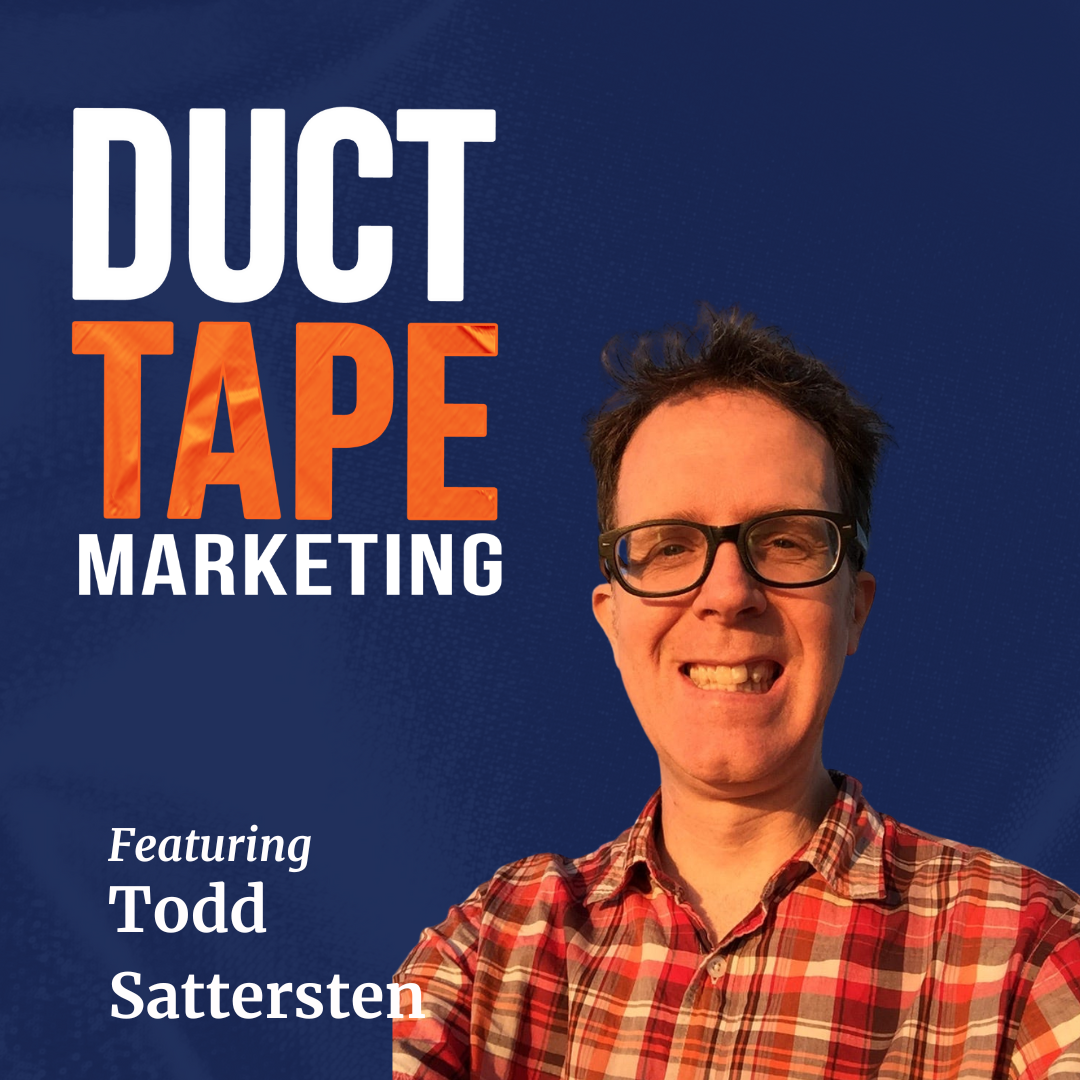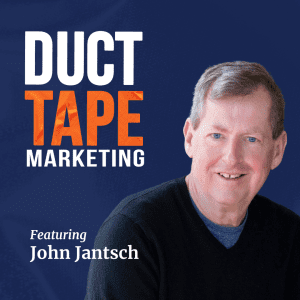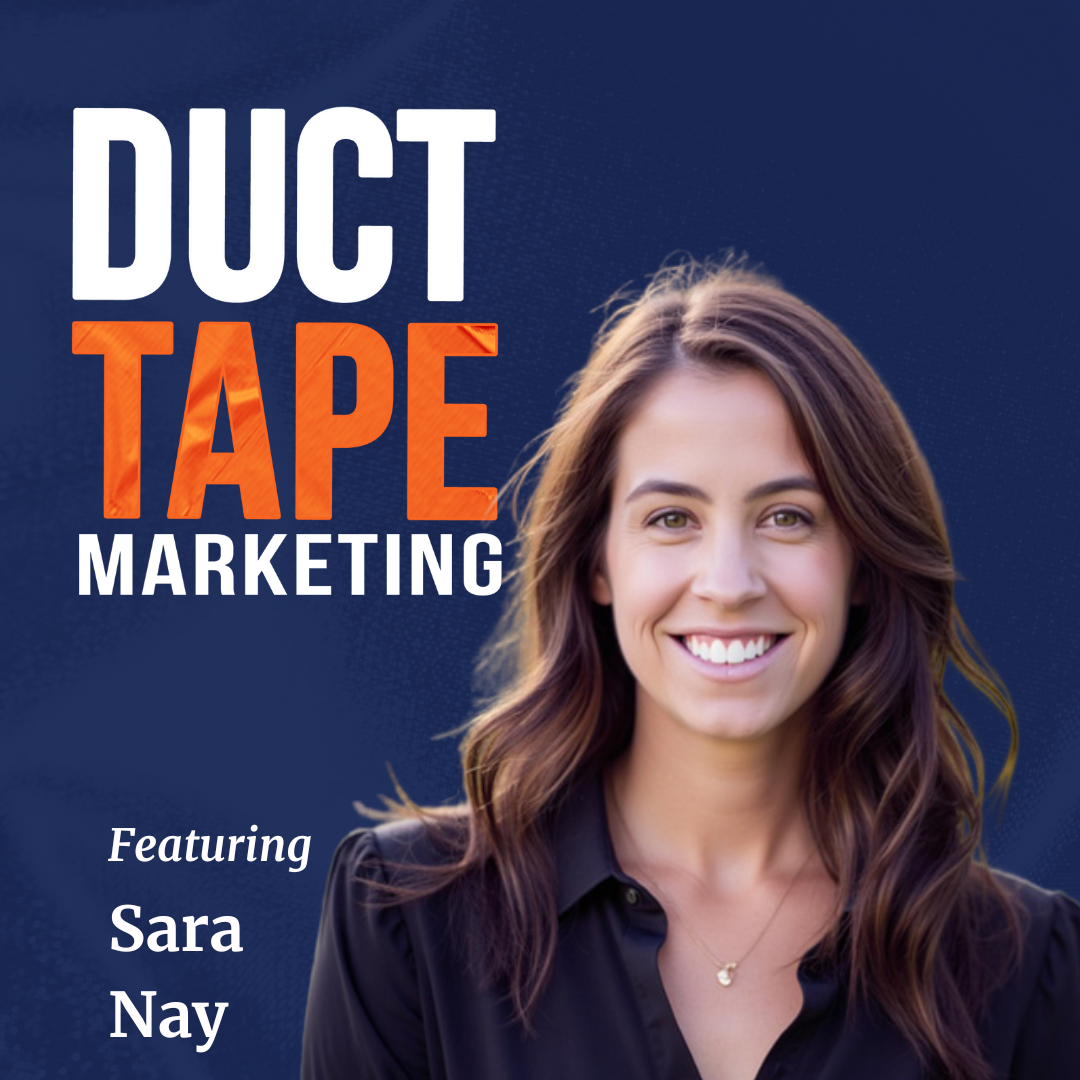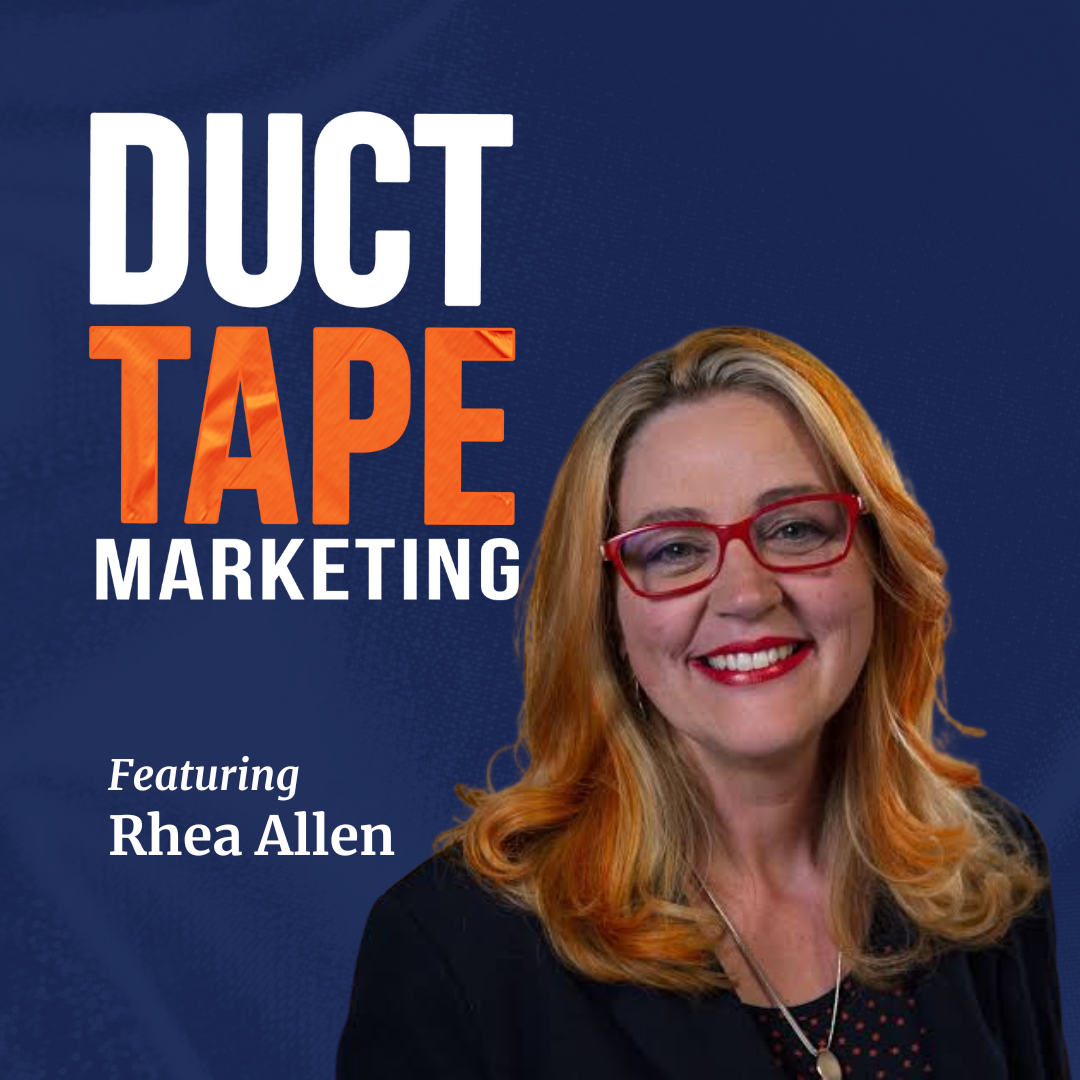Top 10 Duct Tape Marketing Podcast Episodes of 2025 written by John Jantsch read more at Duct Tape Marketing
As we close out 2025, I’ve been reflecting on the conversations, insights, and big ideas that shaped this year on the Duct Tape Marketing Podcast. The pace of change in marketing hasn’t slowed for a second, and small businesses continue to reinvent, experiment, and build stronger connections with the people they serve. This year was filled with curiosity, innovation, and a whole lot of practical wisdom, and I was fortunate to sit down with guests who brought their best thinking to the table.
So I pulled together a collection of the episodes that really stood out. These were listener favorites that delivered serious value, sparked fresh thinking, and encouraged business owners to take action. If any of these slipped past you, now’s a great moment to dive in and catch up.
And if you’re looking for more great conversations, you can always explore the full library of episodes.
1. Todd Satterson- How Books Can Shape Success

Todd Sattersten is a publishing veteran and CEO of Bard Press. In this episode of the Duct Tape Marketing Podcast, Todd and I talk about his new book 100 Books for Work and Life, how he chose the top 100, and why intentional reading can shape your business and personal growth.
Biggest takeaway:
The right book at the right time can be transformational. Todd shares why great books challenge your thinking, offer clarity, and give you practical tools you can use right away.
Click here to listen to the episode.
2. Laura Ries– The Secret Weapon of Great Brands

Laura Ries is a globally recognized branding strategist, bestselling author, and chairwoman of RIES. In this episode of the Duct Tape Marketing Podcast, Laura and I talk about her new book The Strategic Enemy and why every brand needs a clear enemy to create focus, contrast, and memorable positioning.
Biggest takeaway:
Brands win when they take a stand. Laura explains how defining a real enemy gives your brand energy, differentiation, and clarity. Whether it is an outdated process, a stale category, or “the way it has always been done,” the right enemy helps your brand break through and create meaning in the market.
Click here to listen to the episode.
3. John Jantsch– How to Stay Visible in the AI Search Era

In this solo episode of the Duct Tape Marketing Podcast, I break down how search is changing and why traditional SEO is giving way to something bigger: search visibility. With AI search, zero click results, and evolving Google behavior, it is no longer just about ranking for keywords. It is about showing up wherever answers are being delivered.
Biggest takeaway:
Google has become an answer engine. To stay visible, your content needs to offer direct answers, demonstrate real experience and expertise, and appear across multiple touchpoints like snippets, FAQs, Google Business, and long-tail queries. Search visibility is now about trust, structure, and presence across the entire digital ecosystem.
Click here to listen to the episode.
4. Sara Nay– Empowering Small Business with AI & Strategy

Sara Nay is the CEO of Duct Tape Marketing and author of Unchained: Breaking Free From Broken Marketing Models. In this episode of the Duct Tape Marketing Podcast, Sara and I talk about why the traditional agency model no longer works and how her “anti-agency” approach helps small businesses take back ownership of their marketing through strategy, leadership, and smart use of AI.
Biggest takeaway:
Small businesses grow faster when they stop renting their marketing and start owning it. Sara explains how a strategy-first, AI-enabled model creates clarity, control, and sustainable growth, and why fractional CMOs and empowered teams are the future of modern marketing.
Click here to listen to the episode.
5. Rand Fishkin– The Zero-Click Internet: What It Means for Your Marketing Strategy

Rand Fishkin is the co-founder and CEO of SparkToro and one of the most influential voices in SEO and digital marketing. In this episode of the Duct Tape Marketing Podcast, Rand and I talk about the rise of zero-click searches and how Google’s shift toward answering questions directly is changing the way businesses earn visibility online.
Biggest takeaway:
Zero-click is the new reality. With most searches ending without a website visit, Rand explains why brands must show up where their audiences already spend time, such as social platforms, communities, and Google’s own surfaces, rather than relying only on traditional organic traffic.
Click here to listen to the episode.
6. MichaelAaron Flicker– The Brain Science Behind Successful Marketing

MichaelAaron Flicker is the founder and CEO of XenoPsi Ventures and co-founder of the Consumer Behavior Lab. In this episode of the Duct Tape Marketing Podcast, MichaelAaron and I talk about his new book Hacking the Human Mind and how the world’s best brands use behavioral science to create memorable marketing, build loyalty, and shape customer decisions.
Biggest takeaway:
Great marketing works because it taps into human behavior. MichaelAaron explains why concrete messaging, peak moments, specificity, and real behavioral science principles make brands more persuasive and more memorable. When marketers understand how people think and decide, they can create smarter, more effective campaigns without relying on guesswork.
Click here to listen to the episode.
7. Rhea Allen– Why Branding Begins With Your Team Culture

Rhea Allen is the president and CEO of Pepper Shock Media and host of the Marketing Expedition Podcast. In this episode of the Duct Tape Marketing Podcast, Rhea and Sara Nay talk about how internal culture and external brand are deeply connected, why storytelling and authenticity matter, and how engaged teams drive both retention and marketing success.
Biggest takeaway:
Your brand starts with your people. Rhea explains how aligning HR and marketing, involving the team in core values, and sharing real stories creates stronger culture, more authentic marketing, and a brand that resonates inside and out.
Click here to listen to the episode.
8. Ernie Ross– Trust, Storytelling, and the Future of Brands

Ernie Ross is a global brand strategist, founder of Ross Rethink, and creator of the Intangence methodology. In this episode of the Duct Tape Marketing Podcast, Ernie and I talk about his new book Intangence and why the most powerful value in business comes from trust, meaning, and authentic human connection.
Biggest takeaway:
Meaning creates value. Ernie explains how brands that focus on purpose, emotion, and real human connection rise above feature-driven marketing. Trust, authenticity, and strong stories are what spark loyalty, resonance, and long-term success.
Click here to listen to the episode.
9. Manick Bhan– AI, Content Strategy, and Building a Brand That Lasts

Manick Bhan is the founder and CTO of Search Atlas, an advanced SEO and content marketing platform used by thousands of agencies and brands. In this episode of the Duct Tape Marketing Podcast, Manick and I talk about how search is evolving, why high-intent content matters, and how marketers can adapt as AI reshapes the way people discover and trust brands.
Biggest takeaway:
SEO is shifting from reporting to action. Manick explains why tools must help marketers make real improvements, not just gather data, and why brands that focus on quality content, topical authority, and strong community will thrive as AI-powered search changes how buyers convert.
Click here to listen to the episode.
10. Andy Crestodina– AI, Analytics & Content Strategy: The Future of Digital Marketing

Andy Crestodina is the co-founder and CMO of Orbit Media Studios and a leading voice in content strategy, SEO, and analytics. In this episode of the Duct Tape Marketing Podcast, Andy and I talk about how AI is reshaping digital marketing while reinforcing the lasting importance of creativity, relationships, and high-quality content.
Biggest takeaway:
AI can improve performance, but human creativity still wins. Andy explains why strong points of view, original research, visual content, and platform-native publishing are becoming essential as SEO shifts and AI transforms how audiences discover and engage with brands.
Click here to listen to the episode.
We love reviews!
Is your favorite episode on the list? If not, we’d love to hear which one you enjoyed listening to the most!
For our podcast audience, we can’t thank you enough for your support over the years!
If you like the show, click on over and subscribe and if you love the show give us a review on iTunes, please!
from Duct Tape Marketing https://ift.tt/WpYfhNd
via IFTTT

 Episode Overview
Episode Overview after years of working with small businesses that felt overwhelmed by disjointed tactics. Agencies chased big budgets and flashy campaigns, while consultants dropped in and out without leaving a sustainable system. I believed marketing should work like any core business function; systematic, practical and focused on results. That insight became a framework, then a book and eventually a global community built around strategy before tactics.
after years of working with small businesses that felt overwhelmed by disjointed tactics. Agencies chased big budgets and flashy campaigns, while consultants dropped in and out without leaving a sustainable system. I believed marketing should work like any core business function; systematic, practical and focused on results. That insight became a framework, then a book and eventually a global community built around strategy before tactics.

 Episode Overview:
Episode Overview: